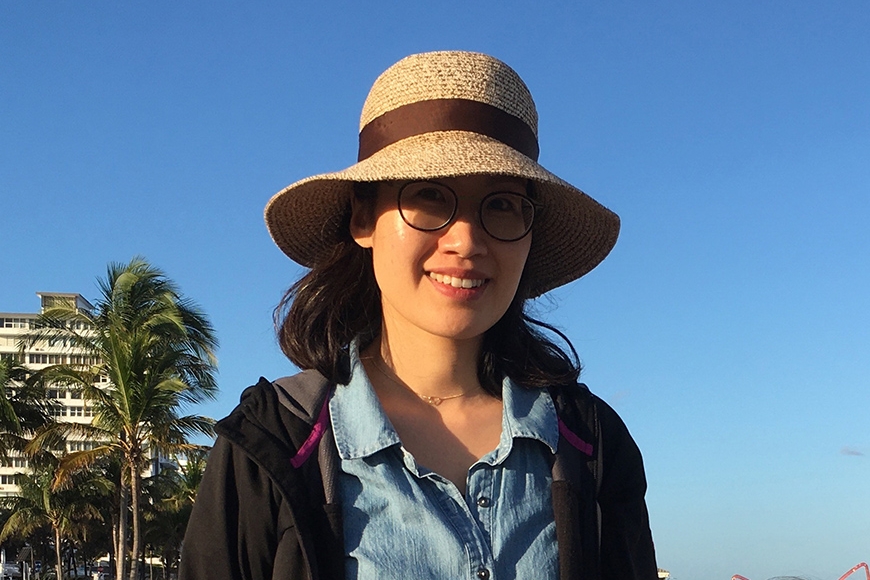PhD Alum Wins Mellon/ACLS Fellowship
For faculty at four-year colleges, Mellon/ACLS Fellowships represent both high level recognition and significant research funding. Last year, recognizing the substantive scholarship of community college faculty, the organization established fellowships for two-year college professors: Alumna Jewon Woo (PhD 2013) was one of 26 scholars in the inaugural cohort. She will receive a $40,000 grant from the Andrew W. Mellon Foundation as a Mellon/ACLS Community College Fellow. Dr. Woo is Associate Professor of English at Lorain County Community College in Ohio.
What are your plans for the Mellon/ACLS fellowship?
My project investigates the 19th-century Black press in Ohio through archival research and digital humanities tools to illuminate early African American communities. I'll be curating the under-studied Black press to reconsider it in literary study, as well as making materials available digitally. I currently work on minding data for a scholarly journal article and website publication; this website will serve as an open source for the learning public. I hope that my project can bring the almost forgotten historical texts to light so that we can learn the complexity of early African Americans’ communal life.
What was the most useful thing you learned in the PhD program?
The flexibility of building my project through interdisciplinary approaches. My two advisers, Dr. Josephine Lee and Dr. Michelle Wright (now at Emory University), encouraged me to incorporate methods of different disciplines with literary analysis. Dr. Lee introduced me to visual materials including archives in relation to literary texts, and Dr. Wright taught me how to theorize an idea beyond what we may consider traditional fields of the humanities. When I attended the program at the U, I did not know about digital humanities: Nevertheless, right after my graduation, I could promptly adopt computational skills and DH theories for my study of Black Print Culture and teaching.
"It is a big mistake if we
believe that scholarship
is a product of a scholar’s
solitary work."
- Dr. Jewon Woo
What is the most useful thing you’ve learned since?
First, I have learned how to build a network with other scholars. It is a big mistake if we believe that scholarship is a product of a scholar’s solitary work. Our work can engage in ongoing conversation both in print and in person, and in doing so, we can continuously grow. As one example, despite all the limitations of social media, I have found supportive groups of scholars for my work on Twitter.
Second, I have realized that graduate students should know more about alternative academic careers. It is our reality that not all the PhDs can teach at an R1 institution like the U. While at the U, I did participate in the series of training sessions offered by the Office for Equity and Diversity because I wanted to rethink my dissertation project on 19th-century African American literature in the context of our contemporary experience. I did not realize that this learning would turn out to be so useful for me to serve underrepresented students at my current institution.
Most intriguing recent reading?
I recently read Tara Westover’s memoir, Educated, published in 2018. The book describes the author’s childhood with a survivalist family in the mountains of Idaho and her education way up to a PhD at Cambridge. It is particularly striking to me that her struggles at higher education institutions, and the resulting painful gap between the invented self and her family, reflect the experiences of many of us who as first-generation college students do not have enough intellectual, emotional, and financial supports from families and schools in navigating around academia. This book is not only beautifully written but insightful about how to see our own life from a new perspective that is not given by but found through education.



